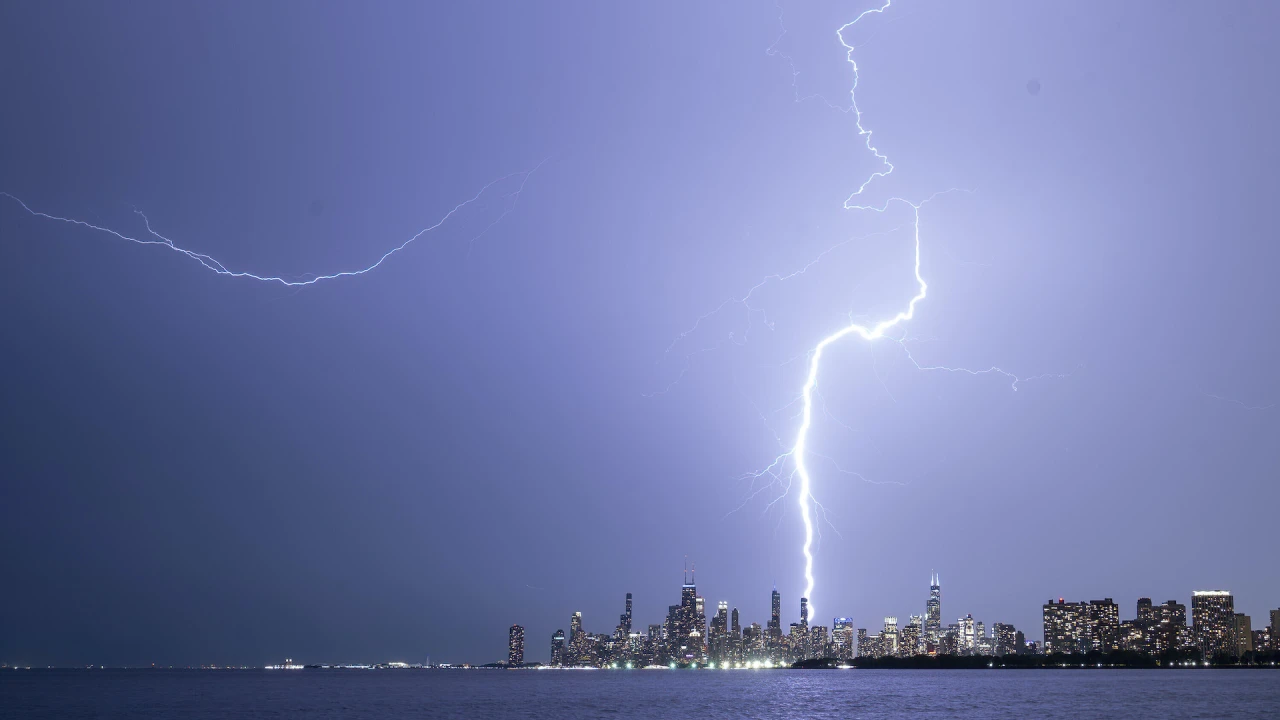
[ad_1]

Crews for two of Michigan’s largest utilities were working to restore power Wednesday to more than 300,000 homes and businesses left in the dark amid hot, muggy conditions after severe storms toppled trees and limbs onto power lines.
More than 320,000 Michigan customers were without power as of late Wednesday morning, most in the central and southeastern parts of the state, according to PowerOutage.us. DTE Energy reported more than 200,000 outages and Consumers Energy more than 108,000.
Brian Kalka, the utility’s vice president of distribution operations, said DTE Energy hoped to have 90% of its outages repaired by Thursday. But he said “we have devastation” from eastern Michigan’s thumb region to almost the Ohio border, referring to a distance of more than 150 miles (241 kilometers).
“This is not necessarily lifting a limb off of a line and restoring power. You’ve got broken poles. You’ve got broken infrastructure,” Kalka said.
In the Detroit suburb of Royal Oak, resident Michael Zaccardelli said he heard about the approaching bad weather Tuesday evening and decided to move his car off the street. Just 15 minutes later, a tree in his front yard fell onto the exact spot where his car had been parked.
“It would’ve been a complete loss. Everyone’s safe and just really thankful no one got hurt,” Zaccardelli told WXYZ-TV.
While Consumers Energy crew members were working to restore power, the utility said it would distribute water and ice to residents in the cities of Midland and Rockford. The company said about 360 members of utility crews were continuing an “around-the-clock effort to restore power.”
“We appreciate people’s patience as Tuesday’s storms caused devastation on one of this summer’s hottest days. Our focus now is to get the lights back on while making sure we’re providing comfort and relief to our friends and neighbors,” Norm Kapala, one of Consumers Energy’s restoration officers, said in a statement.
Severe storms also toppled trees in the Chicago area, damaging homes and automobiles after two days of heat that set a record high of 99 degrees (37. 2 Celsius) Tuesday at O’Hare International Airport. That eclipsed the record of 97 degrees (36.1 Celsius) for the date previously set in 1948, 1953 and 1973, said Brett Borchardt, a meteorologist with the National Weather Service in Chicago.
The overnight storms also dropped hail the size of tennis balls in parts of McHenry County, in Chicago’s far northwest suburbs, and broke the heat wave in northern Illinois, Borchardt said. A cold front moving through the area Wednesday will reinforce that cooler trend by ushering in lower temperatures and humidity.
“The heat wave is over and we’re looking at cooler temperatures and humidity levels today. Yesterday was the worst part of it,” Borchardt said.
Heat advisories were in effect Wednesday for the St. Louis metropolitan area, parts of Indiana, Ohio, Kentucky and West Virginia and the mid-Atlantic region, with the weather service predicting that “many daily high temperature records may be broken.”
Severe thunderstorms were expected Wednesday across the Ohio Valley, the northern mid-Atlantic coast and parts of both North Dakota and South Dakota.
In the central Pacific Ocean, a trio of tropical storms — Hone, Gilma and Hector — were forecasted to weaken, with the remnants of Gilma and then Hector expected to bring much-needed rain to Hawaii through the weekend, according to the National Weather Service in Honolulu. No tropical storms were on the horizon in the Atlantic on Wednesday.
[ad_2]